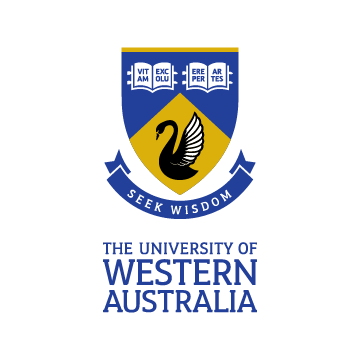These Are The Skills Employers Actually Look For On Your Resume

UWA’s Bachelor of Arts, one of Western Australia’s most diverse degrees.
Whether you’re job hunting now or just beginning your studies, a time will come when you’ll have to start thinking about the old Curriculum Vitae. But what should really be on there after your name, contact details and favourite meme? (Okay, maybe not that last one.)
Fear not – we’ve done the research and put together the skills every recruiter and employer wants to see on a resume. The best thing is that you can pick them up across a range of disciplines and experiences, including an Arts degree.
Adaptability
Image: Rawpixel
There’s been an increase in chatter about the importance of “soft skills” in a modern workplace in recent years. This refers to the attributes you want to possess outside of industry-specific knowledge: think things like the ability to cope under pressure and willingness to take on a challenge, as opposed to simply knowing facts about a topic or how to plug certain formulas into a spreadsheet. It’s estimated soft skill-intensive occupations will account for two-thirds of all jobs by 2030, so these are super important!
Adaptability has been shown to both improve your chances of career success and also satisfaction. The ability to be flexible is a huge advantage in today’s workforce, as jobs are constantly evolving and changing. The job you’re hired for may look a lot different in a few years’ time as technology advances and businesses grow. It’s beyond an asset to be adaptable – it’s a necessity.
It makes a lot of sense from a teamwork perspective, as well – nobody wants to work alongside someone who’s rigid and set in their ways or avoids adopting new methods and processes. Being open to new challenges shows a willingness to learn, and we all want to continue growing, right? Right!
Analytical Thinking
Despite what cynics may say about the education system, employers actually don’t want people who will regurgitate what they’ve heard from others. They want someone who can critically analyse a problem or situation and proactively brainstorm possible solutions.
This gives you the chance to highlight your research skills and reasoning ability alongside problem-solving abilities – all highly desirable to any employer! Deloitte Access Economics put together a huge report in consultation with education providers and industry experts and found problem-solving is a key attribute that’s sought across the board.
Workplaces are keen to invest in staff who are critical thinkers and confident in tackling problems.
Empathy
Image: Rawpixel
Workplaces are increasingly looking for people who think outside their own experience and put themselves in the shoes of a customer or client. In fact, it’s recently been reported that demand for people skills is growing faster than a demand for science, technology, engineering and mathematics (commonly referred to as STEM) skills.
Empathy is much more than a corporate buzzword – it encompasses aspects of emotional intelligence that help us get along with others and make workplaces more cohesive. It’s been shown to have tangible benefits, including better collaboration and happier workplaces. Wins all round!
Resilience
Speaking of emotions, resilience is another example of the importance of emotional literacy. Research around resilience is growing rapidly and it has even been suggested we teach it in schools. It makes a lot of sense when you think about it – there’s nothing wrong with being sensitive, but the truth is life has a tendency to throw curveballs. We need to be able to accept when things don’t go as planned, learn from these experiences, and move forward.
The ability to bounce back after a setback is a huge asset – not just in the workplace, but in life. Aaliyah wasn’t wrong when she sang, “If at first you don’t succeed, dust yourself off and try again”.
Proactive Attitude

Image: José Alejandro Cuffia
The days of micromanagement are slowly diminishing, and while your first instinct may be to breathe a sigh of relief, it means you’ll have to step up and take initiative. Employers want team members who can act autonomously and seek out work instead of waiting in the corner waiting to be hand-fed a task.
While many jobs may be automated, being proactive is an innately human skill, and one that highlights independence and creativity. Qamran Somjee, Practice Leader of Digital Projects and Technology at Davidson Technology, has confirmed this. “In order to be agile, companies need less leader-led employees and are looking for staff who are proactive enough to contribute ideas and resilient enough to accept the teams’ feedback,” he says in this article.
For some people, this may mean challenging any self-doubt or insecurities – fake it ‘til you make it! You’ve worked hard for this interview or career and you deserve to be there just as much as everyone else. Value your ideas and trust the learning you’ve been doing in your degree, and dive in.
—
(Lead image: Rawpixel)
—
Gain the life-long skills employers are seeking with UWA’s Bachelor of Arts, one of Western Australia’s most diverse degrees.